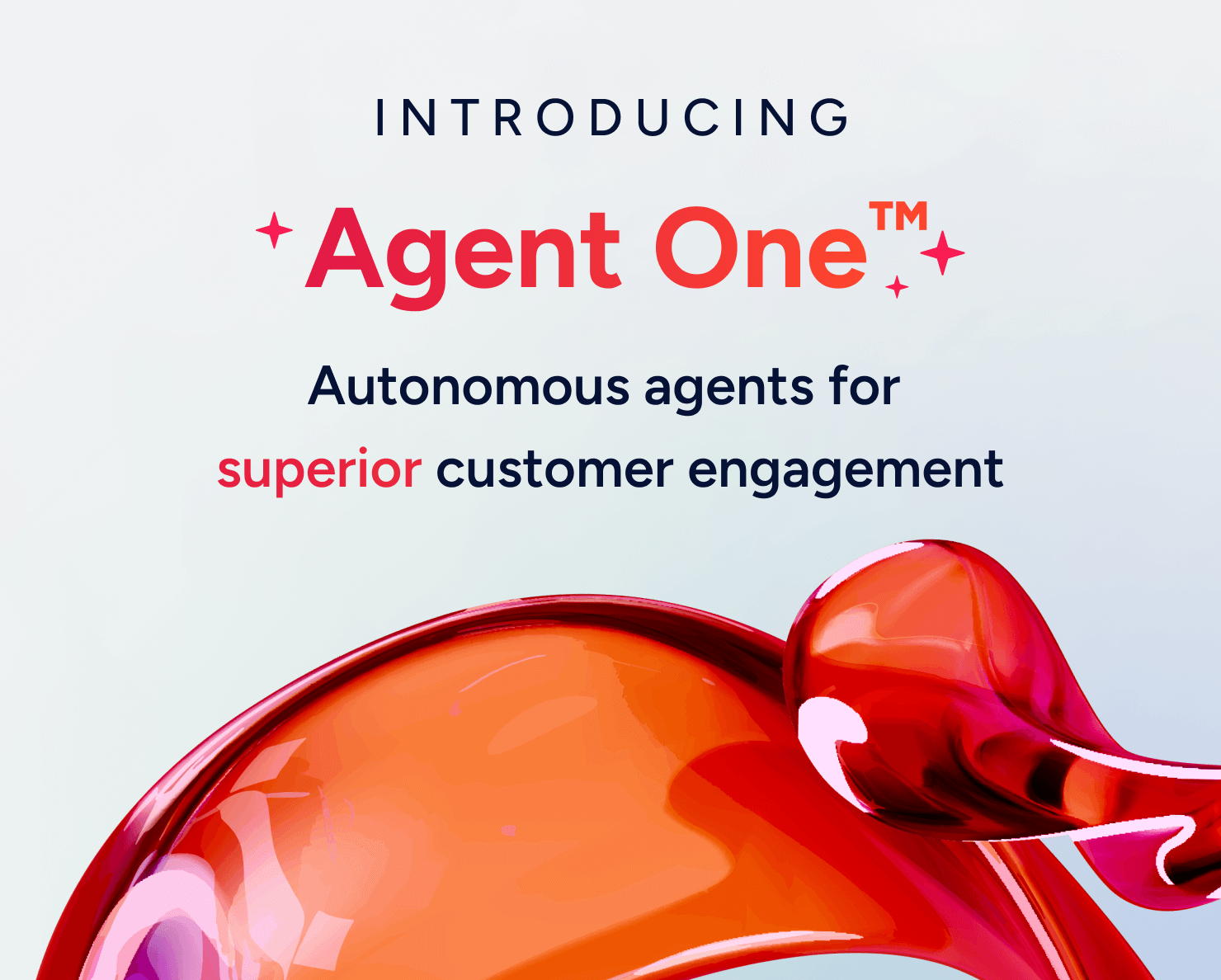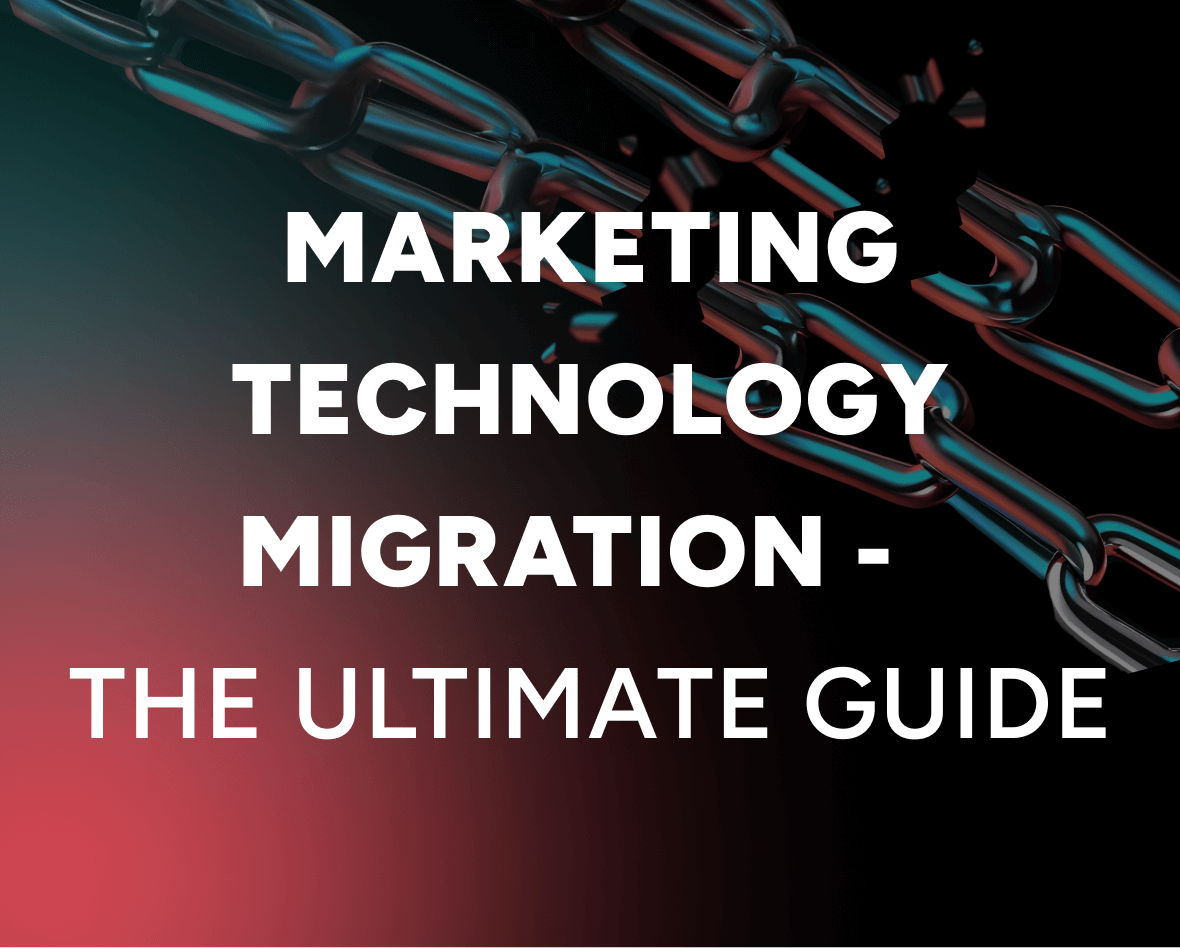The 2025 guide to generative AI in marketing
A recent McKinsey report estimates that generative AI’s impact on productivity could add trillions of dollars in value to the global economy: $2.6 trillion to $4.4 trillion annually across 63 analyzed use cases.
Updated on 9 Oct 2025
Gen AI is revolutionizing consumer marketing as we currently know it. At an individual-company level, marketing campaigns that once required months of content design, insight generation, and customer targeting can be rolled out in days—if not hours. Generative AI is powering granular personalization at scale in ways that weren’t possible before. Change is coming, and companies on the sidelines risk being left behind.
In this blog, we’ll look at generative AI in marketing, its benefits, and how to use it, plus share some example use cases to inspire you. Let’s get started!
What is generative AI in marketing?
Generative AI in marketing empowers marketers to craft relevant, timely, and trustworthy customer experiences effortlessly. From discovering segmentation insights to creating customer journeys, generating content, and automating two-way unstructured conversations, generative AI streamlines the process, enabling marketers to deliver revenue-boosting campaigns within minutes instead of days. This saves hours of manual labor, reduces guesswork, and enhances team productivity, independence, efficiency, and speed.
6 key benefits of using generative AI in marketing
Generative AI in marketing offers multiple benefits, including:
- Enhance personalization
Generative AI enables marketers to deliver highly personalized content and experiences to individual customers based on their preferences, behaviors, and past interactions. Generative AI personalization tools allow you to use information collected in your customer data platform (CDP) to personalize experiences across the entire customer lifecycle.
- Increase efficiency
With generative AI, you can save significant time and resources by automating marketing tasks such as content creation, campaign optimization, and customer segmentation. This increased efficiency allows marketing teams to focus on high-value strategic initiatives rather than repetitive manual tasks.
- Adopt real-time changes
Generative AI empowers marketers to dynamically adjust marketing campaigns in real time based on changing market conditions, customer feedback, and performance metrics. This agility enables you to stay ahead of the competition, respond quickly to emerging trends, and capitalize on new opportunities.
- Improve customer experience
By leveraging generative AI for CX to deliver relevant, timely, and engaging content across multiple channels, you can enhance the overall customer experience. From relevant messages and emails to interactive chatbots, generative AI helps companies create seamless and memorable interactions that delight customers and foster long-term loyalty.
- Gain data-driven insights
Generative AI provides valuable insights into customer preferences, behaviors, and market trends through advanced analytics and predictive modeling. By analyzing vast amounts of data in real-time, you can better understand your target audience, identify new growth opportunities, and make data-driven decisions that drive business success.
How can you use generative AI in marketing automation platforms?
Integrating generative AI into marketing automation platforms provides many opportunities, including:
Generate content automatically
You can use generative AI to automate the creation of various types of marketing content, including email generation based on prompts, ad copy, social media posts, image generation, and product descriptions. You can even create a complete AI-generated video through generative AI with just text or descriptions. By analyzing customer data and behavior patterns, generative AI algorithms generate content that resonates with target audiences, saving you time and effort while ensuring relevance and engagement.
Segment your customers
Generative AI algorithms can segment customers into groups based on common characteristics, behaviors, and preferences. You can use these insights to target specific audience segments with personalized marketing campaigns and offers, maximizing relevance and driving higher conversion rates.
Use predictive analytics to anticipate customer actions
Marketing automation platforms powered by generative AI offer advanced predictive analytics capabilities, enabling marketers to forecast future trends, identify potential opportunities, and anticipate customer needs. Generative AI algorithms provide valuable insights that inform strategic decision-making and campaign optimization by analyzing historical data and patterns.
“ 381% uplift in CR with Insider’s predictive segmentation. By leveraging Insider’s predictive segments for Facebook Ad campaigns we were able to achieve an uplift of 381% in conversion rate for the same budget spend. And, by replicating the same model we were also able to acquire new customers. The results have absolutely stunned us!” — Ahmet Oğulcan, Business Development Manager, read the success story.
Automate customer interactions with conversational marketing
Generative AI can facilitate conversational marketing initiatives by automating two-way customer interactions through chatbots, virtual assistants, and messaging platforms like WhatsApp. You can leverage generative AI to create conversational experiences to fuel your WhatsApp marketing that engages and assists customers in real-time, driving engagement, satisfaction, and sales.
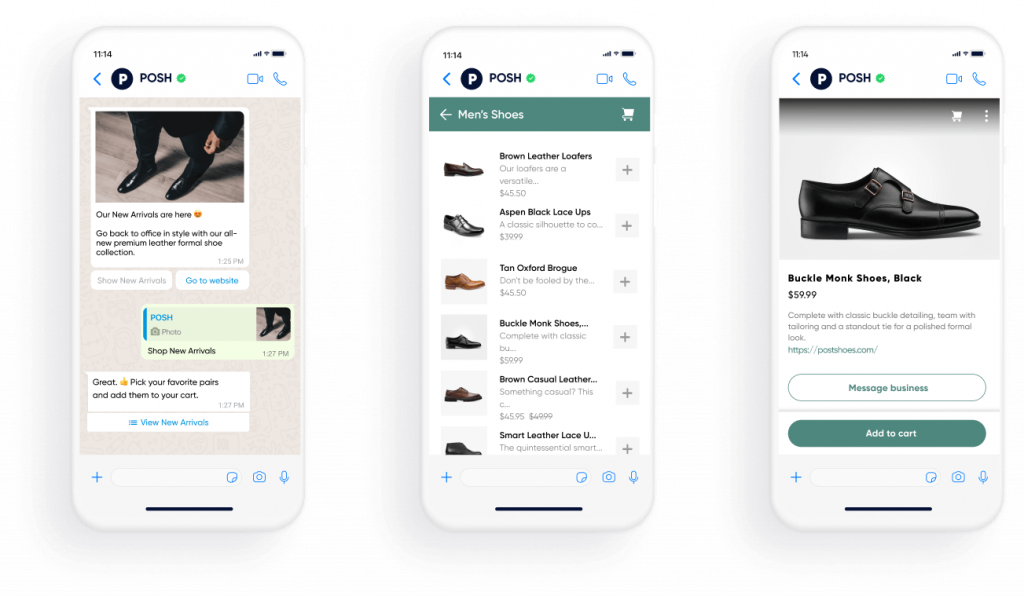
Optimize low-performing campaigns
Generative AI algorithms continuously analyze campaign performance data to identify trends, patterns, and optimization opportunities. You can use these insights to refine your campaigns, test different strategies, and optimize performance for maximum effectiveness and ROI.
5 Generative AI use cases in marketing
- Smart journey and smart segmentation
Generative AI enables marketers to create smart customer journeys and segmentation strategies by analyzing vast amounts of data and identifying patterns.
By leveraging generative AI algorithms, marketers can optimize customer journeys based on individual preferences, behaviors, and interactions, ensuring personalized experiences that drive engagement and conversion.
- Autocomplete customer journeys
Generative AI streamlines creating customer journeys with journey orchestration platforms by automatically suggesting relevant touchpoints, actions, and triggers based on historical data and predictive analytics. Marketers can leverage generative AI to autocomplete with customer journey builder back-end, saving time and effort while ensuring optimal performance and effectiveness.
- Localize content with language support
Generative AI facilitates content localization by providing language support and automatic translation capabilities. Marketers can use generative AI algorithms to generate localized content variations tailored to different languages, regions, and cultural preferences, enabling them to reach diverse audiences with relevant messaging and communication.
- Improve product discovery with AI-powered search
Generative AI enhances product discovery by powering intelligent search capabilities that analyze user intent, preferences, and browsing behavior. By leveraging generative AI algorithms, marketers can deliver personalized search results that match individual interests and preferences, enabling users to discover relevant products and content more effectively.
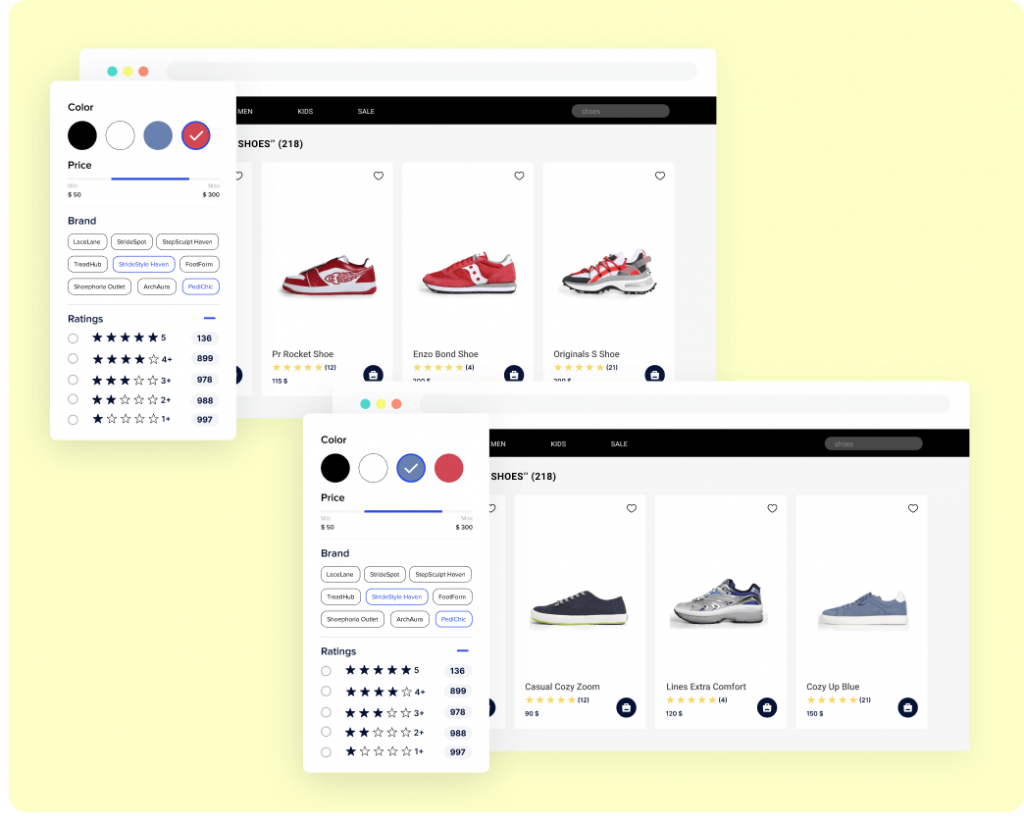
5. Optimize your channel mix with the next best channel
Generative AI helps marketers optimize their channel mix by identifying the most effective channels for engaging with customers at each customer journey stage.
By analyzing customer data and behavior patterns, generative AI algorithms recommend the next best channel for reaching and engaging with target audiences, maximizing the impact of marketing efforts, and driving better results. This will allow you to build an effective omnichannel marketing strategy with scalable omnichannel marketing automation.
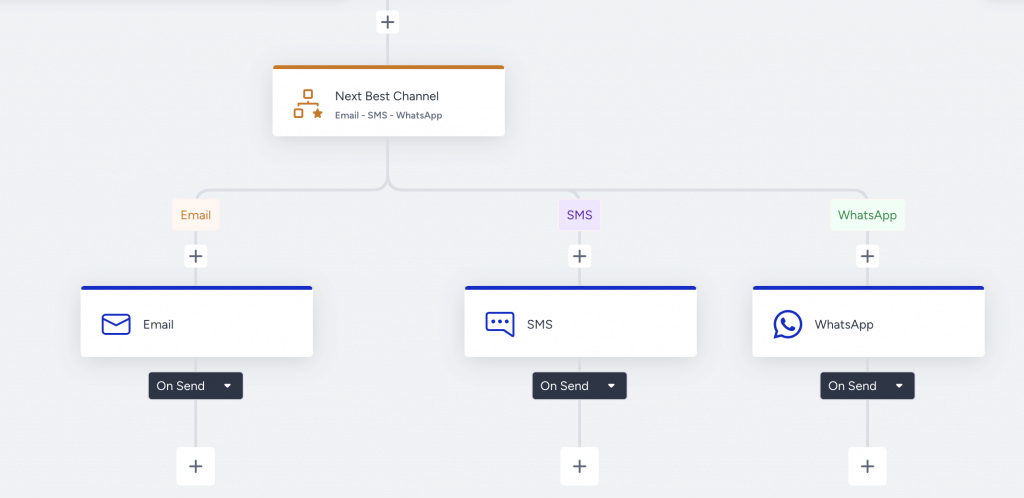
Concerns around generative AI
Despite its many benefits, generative AI in marketing raises several concerns. Some of the key concerns include:
- Accountability: As generative AI algorithms become more autonomous and capable of generating content and making decisions, there is a growing need for accountability. Ensure transparency and accountability in the use of generative AI to prevent potential ethical issues or unintended consequences.
- Security: Generative AI systems are vulnerable to security threats, including data breaches, manipulation, and unauthorized access. Implement robust security measures to protect sensitive data and ensure the integrity and confidentiality of their generative AI systems.
- Accuracy: The reliability of generative AI algorithms is crucial for ensuring consistent and accurate results. Test and validate your generative AI models to ensure reliability and minimize the risk of errors or inconsistencies.
- Data quality: Generative AI relies heavily on data inputs to generate content and make decisions. Ensuring the accuracy and quality of the data used to train generative AI models is essential for achieving reliable and meaningful results. Invest in data quality management processes and techniques to maintain high levels of data accuracy.
Deliver better customer experience with Insider’s Sirius AI™
Sirius AI™, Insider’s patent-pending AI solution, combines the power of large language models and machine learning—including predictive, conversational, and generative AI—to help marketers at every stage of customer journey creation.
Unlike other generative AI solutions, Sirius AI™ offers automation, machine learning, and large language models at every level of customer experience creation, making it the world’s most robust and comprehensive generative AI solution for customer experience.
Sirius AI™ provides safe, reliable, and relevant customer experiences—on autopilot and at scale. These experiences are optimized for results that tie to business and marketing goals, such as higher purchase rates, conversions, AOV, product discovery, and more.
Marketers can free up their time, efforts, and energies from low-impact, manual execution and supercharging their productivity. By putting customer experience creation on autopilot at every level, marketers can focus on building a love brand and delighting customers with relevant messages, valuable recommendations, and safe use of their data through personalized experiences.
FAQ
Generative AI refers to a subset of artificial intelligence that generates new content, such as images, text, or audio, closely resembling human-created content.
Generative AI can be used in marketing to automate content creation, personalize marketing messages, and streamline campaign management processes, resulting in more efficient and effective marketing campaigns.
AI is revolutionizing marketing by enabling hyper-personalization, automation of repetitive tasks, and real-time data analysis, leading to improved targeting, customer engagement, and ROI for marketers.
The future of AI in marketing is promising, with continued advancements expected in areas such as predictive analytics, natural language processing, and customer experience optimization, allowing marketers to create more personalized and engaging interactions with their target audience.

